In the first two articles in this series of reports about businessman and arms dealer Ziad Takieddine, Mediapart exclusively revealed his very close personal links with key members of French President Nicolas Sarkozy's immediate entourage, including past and present ministers. Mediapart has also revealed how Takieddine pays no income nor wealth tax in France, his fiscal domicile and where, according to documents signed by him, he has a wealth of more than 40 million euros.
Mediapart has further revealed that Takieddine, who holds both French and Lebanese nationalities, received a payment totaling a value of 91 million euros between 1997 and 1998 from a sale of French frigates to Saudi Arabia, a contract authorized in 1994 by Nicolas Sarkozy when he was budget minister under then-Prime Minister Edouard Balladur.
It was also in 1994 that France signed a deal to sell three Agosta-class submarines to Pakistan, a contract in which Takieddine has been identified by several of those involved in the deal as a key intermediary, after he was imposed on the deal by the then-government of Edouard Balladur. Takieddine has denied this.
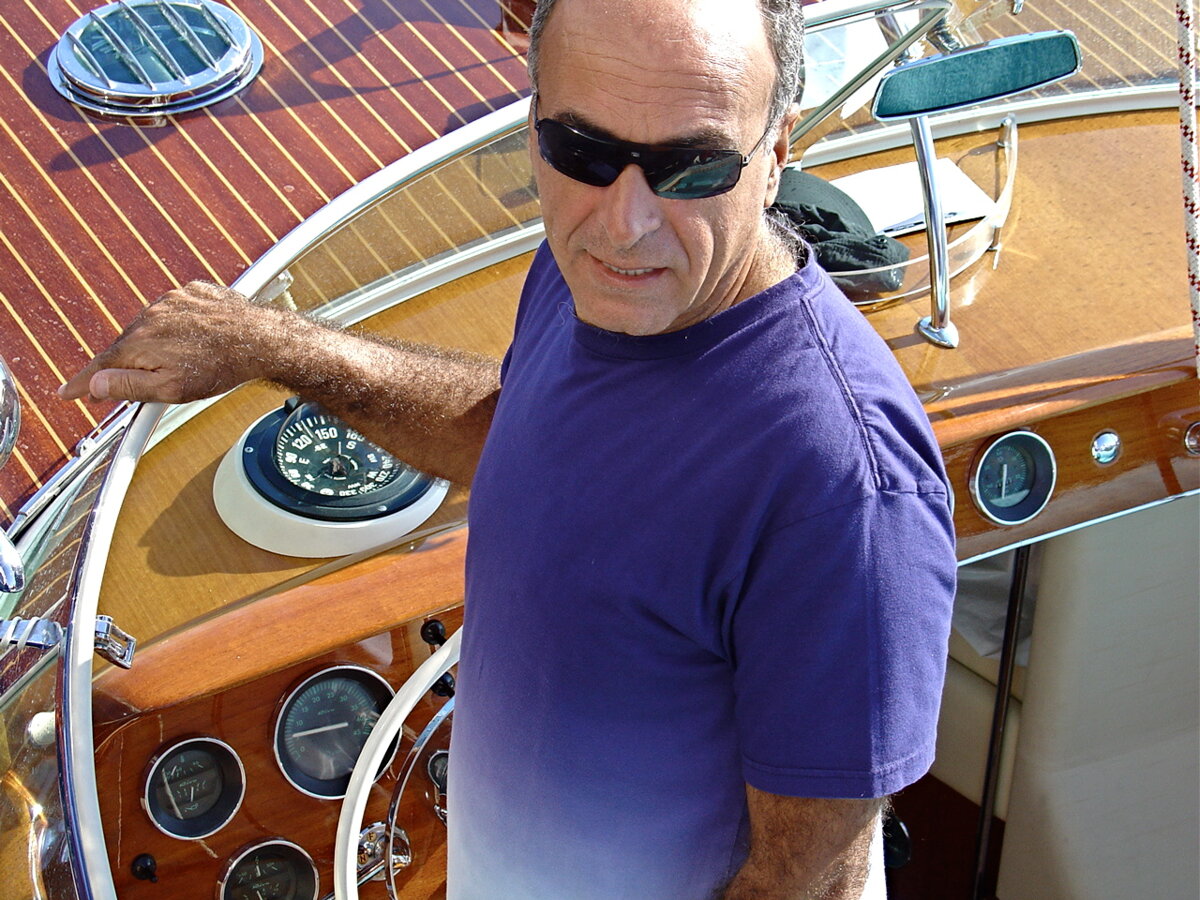
Enlargement : Illustration 1

The Agosta sale was the beginning of what has become known in France as ‘the Karachi affair', a potentially far-reaching political scandal that owes its name to the murders, in 2002, of 11 French naval engineers who were helping build one of the three submarines in the Pakistani port city. (See Mediapart's Q&A guide here and a video presentation here).
The credited lead in an ongoing investigation into their murders is that they were the victims of a revenge attack for the non-payment of commissions promised in the deal, halted immediately after Balladur's political rival Jacques Chirac beat him to the presidency in 1995.
The 1994 contracts with Saudi Arabia and Pakistan are currently the subject of a separate investigation by Paris-based examining magistrates Renaud Van Ruymbeke and Roger Le Loire over suspicions that they served as a means for illegal party funding in France, via return kickback payments made abroad. This aspect focuses on the financing of Edouard Balladur's 1995 presidential campaign against Chirac, for which Nicolas Sarkozy, while still budget minister, was also the spokesman.
Balladur and Sarkozy have denied any knowledge of illegal funding from the contracts.
Chirac was the RPR's designated candidate for the 1995 presidential elections but, just months before the poll, Balladur betrayed him by running as a rival conservative right candidate. It was the beginning of a bitter feud between the Chirac and Balladur camps, and is a key element in understanding the events presented in this article.
After Jacques Chirac's election to a second term as president in May 2002, Nicolas Sarkozy was appointed interior minister, his first return to a government since 1995. In the intervening years, Sarkozy had built up a power base in the centre right. He remained a clear, and later outspoken, rival for Chirac, whom he ultimately replaced.
Shortly before Sarkozy's return to government in 2002, Saudi Arabia launched for international tender a defence project called the Saudi Border Guard Defence Program. Codenamed Miksa. The project involved securing the country's 9,000 kilometres of borders, including the supply of helicopters, aircraft, radars and a collection of highly-sophisticated communications systems. The total project was worth an estimated contract value of some 7 billion euros.
It would be several years later, in July 2009, that the European aerospace and defence group EADS was finally awarded a contract for the first stage of the programme.
But the bidding began while Sarkozy was interior minister. Documents sent by Ziad Takieddine to Sarkozy's staff in 2003 and 2004 testify that Takieddine had by then become the ministry's principal architect for the contract.
At that same period, in 2003, several people close to Sarkozy, notably Brice Hortefeux, a longstanding Sarkozy ally and then a member of Sarkozy's ministerial staff, were hosted by the arms dealer as guests at his French Riviera villa in Cap d'Antibes, and on sailing trips on his yacht, La Diva, as illustrated in photos published by Mediapart earlier this month.
However, in 2004, a last minute intervention by then-president Jacques Chirac prevented Sarkozy from signing the lucrative contract. A former high-ranking figure in the French arms industry, whose identity is deliberately withheld, has told Mediapart that it was understood that Chirac's entourage suspected that the deal included a scheme to provide funding for Sarkozy's political camp.

The Miksa contract became an immediate priority for Sarkozy soon after he took up his post as interior minister in 2002. In a letter addressed to the Saudi interior minister Prince Nayef bin Abdul-Aziz dated July 8th 2002, he wrote:
"Knowing the importance for the Saudi authorities of controlling the kingdom's borders, I wish to confirm to Your Highness the interest of the French government in [supplying] the Saudi Border Guard Defence Program and to confirm to him that it will provide its guarantee for the proper fulfillment of the contract that is to be signed between the Thalès group, responsible for the industrial work, and the Saudi government. Control of the proper fulfillment of this contract will be ensured by the company Civi-pol conseil [sic], a French Ministry of the Interior services and consultancy company. I propose to Your Highness to sign with Him, when He will chose to do so, the cooperation agreement prepared by our services."
However, the bid for the contract, managed by the minister's senior staff - Claude Guéant (now interior minister), Brice Hortefeux and Sarkozy's then-diplomatic advisor David Martinon - proved a long process. Apart from the approval of Prince Nayef, the Saudi decision also required that of Crown Prince Abdullah bin Abdul-Aziz Al Saud, then regent of the country (before succeeding his half-brother Fahd as king in August 2005).
Ziad Takieddine entered the scene in the autumn of 2003. According to reports written by him and obtained by Mediapart, he was answerable to Claude Guéant and Brice Horetefeux and accompanied them on visits to Saudi Arabia. Takieddine defined the orientations for the negotiations, gave instructions, advised on the language employed by Sarkozy's staff, and played a role as a courier between the Saudi dignitaries and Sarkozy.
The 'fight' between the' boss' and 'Number 1'
A first report, dated October 16th 2003 and entitled ‘Elaboration of the Technical and Financial Proposition' (Elaboration de la Proposition technique et financière), mentions a visit to the Saudi interior ministry two days earlier by Brice Horetefeux, described by his initials ‘BH'. The report, written in French, warned that:
"According to the desire expressed on several occasions by the Saudi officials, and latterly confirmed with force by HRH Prince Nayef on October 14th to BH in Riyadh, that the contract should be handled ‘Government to Government', it will be indispensable at this stage of the negotiations that the company in charge of the contract work ceases all contact with the Saudi Ministry of the Interior, directly or indirectly, through its subsidiary in the country, in order to increase efficiency."
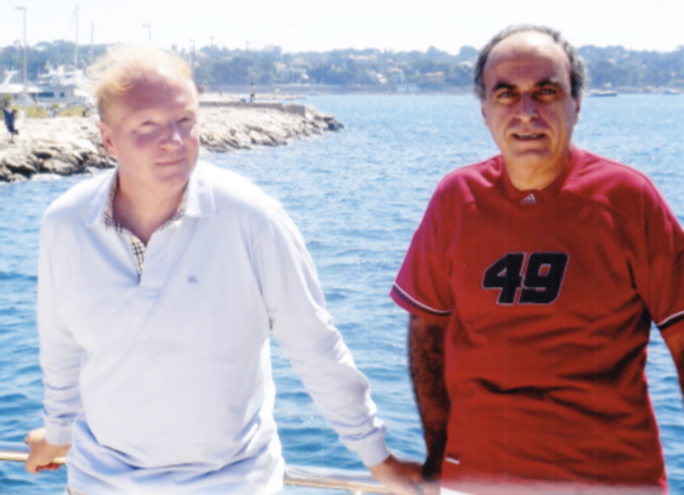
Takieddine commented that Prince Nayef "sees no inconvenience in dealing with one or several of the industrial [companies] chosen by the French Ministry of the Interior [...] on condition that this is done under the surveillance of the ministry."
Takieddine then proposed a "road map" linked to a planned future visit to Riyadh by Nicolas Sarkozy.
"It is necessary to recognize today that, with regard to the contacts established with the aim of preparing the minister's visit to the kingdom, the contract is far from being ready for signing by the minister during his visit. The financial propositions received on September 30th 2003 (four days before the initially programmed visit by the minister on October 4th or 5th), did not at all correspond with the repeated demands of the Saudi authorities."
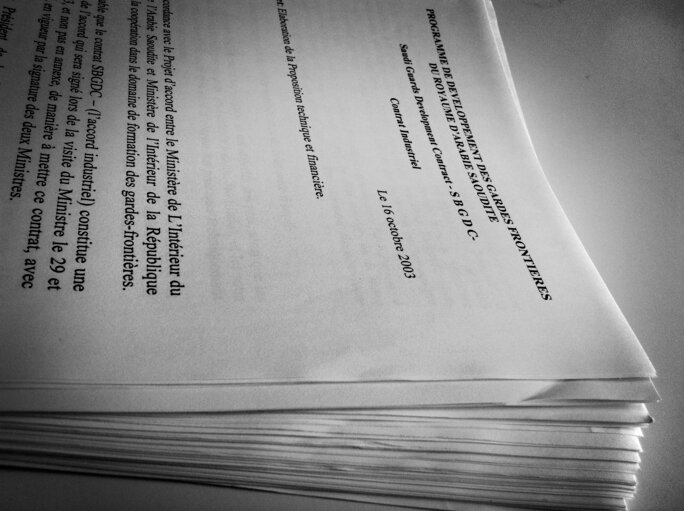
Enlargement : Illustration 4

The aim of Takieddine and Sarkozy's ministerial team was clearly that the French signatories to the contract would be the interior ministry and its services and consultancy company CIVIPOL. It would then be down to CIVIPOL to enter into agreements with Thalès.
The payment schedule was defined by Takieddine in his report as "similar to that used for the ‘S' contract signed in November 1994". This was a reference to the Sawari II contract between France and Saudi Arabia for the supply of three La Fayette frigates to the kingdom, and which, as previously outlined, is currently under investigation for suspected illegal political party funding by magistrates Van Ruymbeke and Le Loire.
As time passed, the sensitive aspects of the Miksa contract were increasingly revealed in Takieddine's reports. In an account of a secret visit he made on October 29th 2003, Takieddine warns of the risks to the contract created by the internal divisions among France's ruling conservative right, notably the turbulent relations between Sarkozy, who he describes as "the boss", and then-President Jacques Chirac, who he describes as "number 1".
"There have been many questions about the relations between ‘the boss' and the number 1, and his system. My contacts in no way wish to involve themselves in this Franco-French 'fight', and will ask for personal guarantees from ‘the boss' himself."
Five percent from the ministry
Ziad Takieddine goes on to recapitulate "the following decisions made by the boss" - which appear to reinforce suspicions later expressed that the Miksa project was to serve political funding purposes:
"The old system has been discarded. A new structure, completely dependent on his ministry, has been set up to guarantee the Consultancy's role in the Project. It will be capable of providing cover for this ‘sensitive' matter by means of its fees."
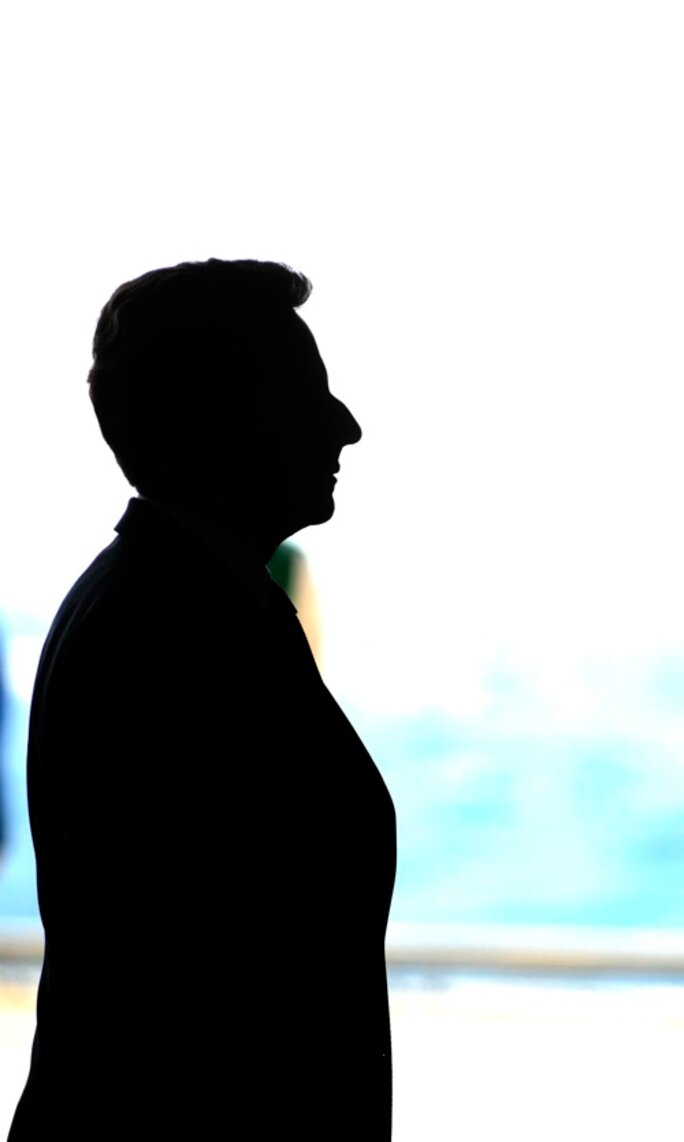
Enlargement : Illustration 5

The interior ministry's company CIVIPOL would be tasked with handling the commission payments. The reason for this, as Takieddine explained it, was because the Thalès company, for its part, presented as "the T. corporation, which has become private", could not "provide that cover in any manner" owing to "international rules on the subject". The reference here is to OECD anti-corruption provisions, which had been incorporated into French law in September of the year 2000.
"It [Thalès] will naturally be informed of the demands of the Consultancy Company [CIVIPOL], directly dependent on the Ministry, without giving any other explanations or details than its need to conclude ‘outside consulting agreements' useful for the realisation of the Contract," the report continues.
Ziad Takieddine and his cohorts sought to sideline Thalès, which they deemed "at odds with the desired System", as far as possible. Thalès was not to play any other part whatsoever, nor was it to be informed of any details (such as names) nor actually meet with any of the people involved. The memo then mentions a mysterious "P.'s merchant bank", a "cover/umbrella" and "the System". The terminology employed here appears, at the very least, incongruous for a contract to be concluded between two states.
"During the next [and] final preparatory visit, it will be useful to confirm the signing with the Company, represented by P.'s Merchant Bank, of the contract in your possession according to the approved plans," reads the report of October 29th 2003.
"My connections represent the ‘cover/umbrella' on site. This coordination is essential to providing an ‘assurance' of a result. ‘They' are not about to forget what happened with the same System the last time. Hence their demands."
Another preparatory visit was planned to Saudi Arabia. On November 3rd 2003, Ziad Takieddine outlined the shape it was to take in another report.
In his words, "the preparatory visit is extremely important (more important than the official visit)". He also underlines that the "Dircab" (abbreviation for directeur de cabinet, i.e. Sarkozy's principal private secretary, who was then Claude Guéant) had to recover some "departmental" notes, and documents from Sofremi, the ministry's former arms exporter. Takieddine also mentions the "signing of a contract (5%) before the ‘big' visit. (Dircab's intervention necessary)".
The "5%" represented the amount of secret commissions the interior ministry had agreed to pay Ziad Takieddine on the deal, as evidenced by a schedule of payments (shown below) appended to a draft contract between the Ministry of the Interior/CIVIPOL and Blue Planet Limited, an offshore company domiciled in Gibraltar. In total, the commissions amounted to 350 million euros.
Payment schedule: click on 'Blue Planet' below to see in more detail.
'Essential that everyone is taken by surprise'
Meanwhile, according to documents obtained by Mediapart, Blue Planet Limited was also supposed to sign with Thalisa, the Thalès subsidiary in Saudi Arabia, a contract guaranteeing it an additional 5% cut of the deal. The payments were to be retransferred to Theobald Limited, a company registered in the British Virgin Islands, then to Pulikao Limited and Doniver Limited, both registered in the Bahamas.
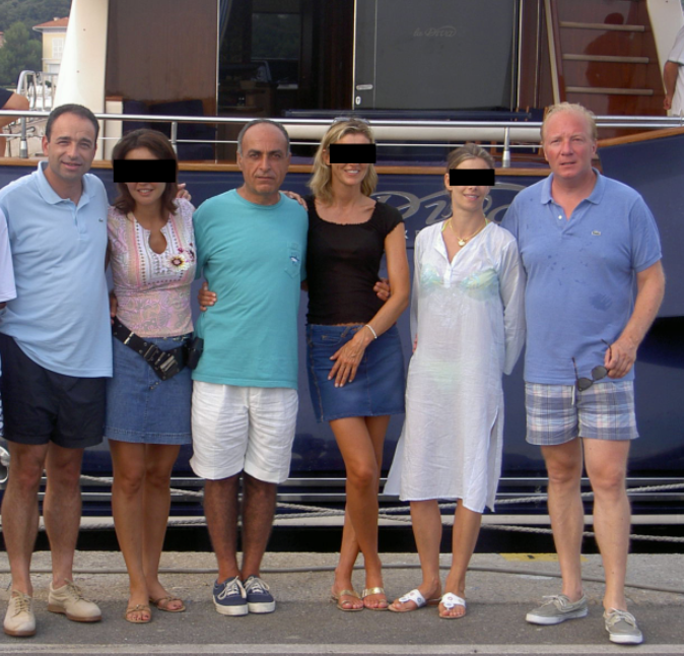
Enlargement : Illustration 7

However, the political situation was highly explosive, as indicated in Takieddine's report of November 3rd 2003. In particular, he recommends precautions for a visit to Saudi Arabia by Brice Hortefeux, described as ‘B'.
"A preparatory visit is unusual. It must be of a secret nature. Neither the Cabinet nor the Diplomatic Adviser must be in the know, for the obvious risk of leaks," Takieddine warned.
"For that reason," he continued, "it will be preferable for B. [Brice Hortefeux] to travel alone, and to travel ‘without fanfare': [by] airliner from Geneva or Zurich. In the interest of signing without ‘interferences', it is essential that everyone be taken by surprise by this signing. The other advantage: greater ease with which to broach the other important subject, in the most straightforward manner."
This fear of interference suggests much about the actual "important subject" to be discussed in Saudi Arabia. Takieddine continued:
"The ‘rumours' surrounding the ‘visit' lead us to make the following observations: This visit is not desired by the ‘Quai' [French foreign ministry]. It will take place despite the lack of enthusiasm and the dearth of interest shown by the French ambassador and the Diplomatic Adviser. It would be desirable, for the success thereof, to avoid provoking any reaction on their part - acting on orders - that might ‘turn' their attitude into ‘hostility', perhaps to the point of cancelling the visit for various reasons."
"So the parallel preparations must be handled as an absolute ‘defence secret'", wrote Takieddine, adding:
"- It is not customary for the ‘adviser' to go and prepare. That is the role of the Ambassador on site. It must be left to him - along with the Cabinet, via the diplomatic adviser - to prepare the ‘official' side of the visit. And thereby to ‘reassure' their ‘superiors' of the ‘hollow' and ‘formal content' of the matter, by placing the visit under the heading of coordinating the international fight against terrorism, and French Muslims, etc.
- The impression must never be given that there is any possible ‘access' to the country's ‘leaders' other than through official channels. Otherwise ‘suspicion' and rumours would gain the upper hand and trigger ‘the hostilities', etc.
- It is essential that the ‘business' side of the visit is not placed at the fore by the official preparations. Only as an important point within the framework of ‘exchanges' between the two countries in the area of fighting terrorism, etc. It is of course perfectly normal for the Minister to bring up the ‘business' matter, like his predecessors in fact, but this subject must not be uppermost during the visit - [which would be] highly dangerous on a [domestic] Franco-French level."
Contacted by Mediapart, Brice Hortefeux confirmed that he had travelled to Saudi Arabia and been in contact "about this matter" with Ziad Takieddine, "who had connections with the country's authorities". Hortefeux denied having been informed that the interior ministry was to pay 350 million euros in commissions to Takieddine. "This sum, I'm learning about it from you," he said.
Alain Rondepierre, a prefect serving as president of CIVIPOL since 2003, told Mediapart that he was "bound by obligations of restraint" and said he did not want to discuss "these matters".
'Chirac saw election funding threat'
On December 12th 2003, having come to the conclusion that unacceptable ulterior motives lay behind the Miksa contract's management by the interior ministry, President Jacques Chirac ordered Nicolas Sarkozy to cancel his plans to fly to Saudi Arabia when he was due to sign a definitive version of the deal. Further still, the president took his interior minister off the matter entirely.
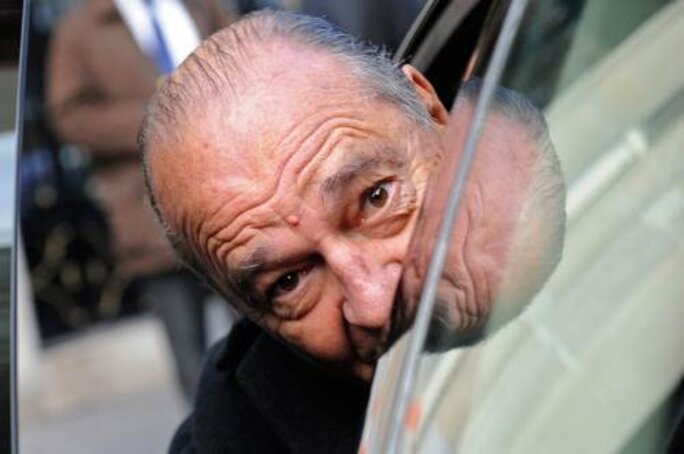
It was Michel Mazens, the director of Sofresa, another arms export agency assigned to handling arms sales to Saudi Arabia, who delivered the news to the Sarkozy clan. This high-level arms official, already at the centre of the disputes over the Sawari II and Agosta deals, met with Sarkozy's principal private secretary, Claude Guéant (now interior minister after serving as President Sarkozy's Chief-of-Staff).
"Jacques Chirac was afraid Sarkozy would snatch up Miksa," Michel Mazens told Mediapart. "I didn't know the ministry's hidden motives, but President Chirac saw a threat there linked to funding for the 2007 presidential election. By order of the President [of France], I went to Claude Guéant's office on several consecutive Saturdays to find out about the matter. It was my conviction that the interior ministry didn't have the industrial competence to negotiate such a contract."
The secret commission contracts were not shown to the president's envoy.
Ziad Takieddine reported on two of Claude Guéant's subsequent meetings, one with Jean-Paul Perrier of Thalès on January 8th 2004, the other with Michel Mazens on January 9th. Takieddine wrote: "All this has disrupted the ‘agreements' reached with Saudi Arabia through the direct contacts with Prince Nayef. These need to be confirmed.[...] So do the commission payments. The game of Sofresa has certainly helped create an air of doubt about its willingness to honour its agreements, notably those made between the two ministers through the direct contacts established since the month of September."
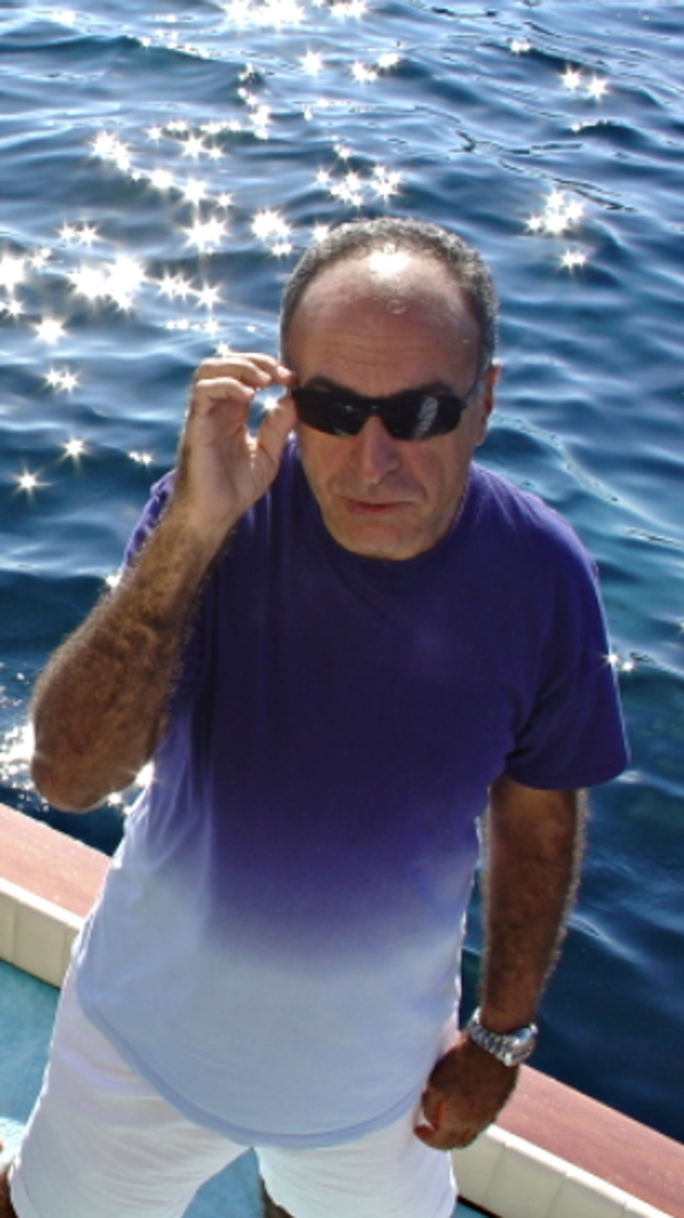
After Chirac issued his command, several confidential messages were exchanged in early 2004 between Prince Nayef and Nicolas Sarkozy, with Ziad Takieddine serving as the go-between. On January 25th 2004, the arms dealer drew up a letter headed "Messages from Prince Nayef bin Abdul-Aziz. To be forwarded to Mr Nicolas Sarkozy".
The Saudi prince stated he still had every confidence in the interior minister, even though the latter had just been disowned by the president: "The Prince, who is well informed of current political events in France, is perfectly aware of the part the Minister plays and, if you will allow me, Mr Minister, the part you will play in future."
"On this point," the letter continues, "Prince Nayef wishes to assure you that the business contract will be signed with you and you alone. He also asked me to assure you that, above and beyond this contract, he attaches importance to maintaining long-term relations with you [...]. Prince Nayef appreciates the direct contact that has been established, as well as the quality of the dialogue with your emissaries. That has made it possible, for the first time, to resolve a number of problems and misunderstandings."
A week later, on February 1st, a note from Ziad Takieddine refers to a "telephone conversation" between Nicolas Sarkozy and Prince Nayef in which the former says to the latter: "I would also like to apologise to you once again for the postponement of my visit to the Kingdom and to assure you that we have made the most of this time to arrive at solutions that comply with the desires you have expressed, in the interest of both of our countries."
"I have learned," continues Sarkozy, "that you intend to undertake a journey outside the Kingdom in the near future. I hope I will have an opportunity to pay you a visit in a private capacity during that stay, to greet you and bring you up to date on the latest developments."
Contacted by Mediapart, neither the French President's office nor the interior ministry have responded to Mediapart's requests for comments on the matters raised in this article.
-------------------------
English version by Eric Rosencrantz and Graham Tearse
(Editing by Graham Tearse)


